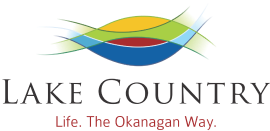The Board of Variance is an appeal body consisting of three appointed members who hear and then decide upon variances to the Zoning Bylaw of the District of Lake Country. The Board of Variance provides citizens with an avenue for appeal on the interpretation and the strict application of certain local government provisions and regulations in specific circumstances defined in the legislation. The Board of Variance functions independently from municipal Council and has its own authority under the Local Government Act.
The Board of Variance is not an appeal board for local government policy decisions, and it cannot replace decisions of elected officials. The Board is confined to considering variances that will not impact adversely upon a policy decision or change the intent of the Bylaws adopted by municipal Council.
Variances can be granted respecting bylaw requirements for the siting, dimensions, or size of buildings. In some special cases general regulations or ones prohibiting structural changes in a non-conforming building or requiring services upon subdivision may result in an undue hardship, if applied to a particular site. The difficulty in determining what undue hardship is, and revolves around whether the hardship would have been a hardship for everyone. If compliance with the general setback regulations is difficult or expensive, but that is the case for all properties within the zone, there is not undue hardship. If a circumstance penalizes one or only a few owners, it would then be undue hardship. A person may appeal to the Board for a variance only if the application of these general regulations to his or her particular site would impose such a hardship. Otherwise the appropriate procedure to follow is the Development Variance Application process.
The Board of Variance meets when required rather than on a regular schedule.
See Bylaw 96-070 regarding the Board of Variance.
The Board of Variance is not an appeal board for local government policy decisions, and it cannot replace decisions of elected officials. The Board is confined to considering variances that will not impact adversely upon a policy decision or change the intent of the Bylaws adopted by municipal Council.
Variances can be granted respecting bylaw requirements for the siting, dimensions, or size of buildings. In some special cases general regulations or ones prohibiting structural changes in a non-conforming building or requiring services upon subdivision may result in an undue hardship, if applied to a particular site. The difficulty in determining what undue hardship is, and revolves around whether the hardship would have been a hardship for everyone. If compliance with the general setback regulations is difficult or expensive, but that is the case for all properties within the zone, there is not undue hardship. If a circumstance penalizes one or only a few owners, it would then be undue hardship. A person may appeal to the Board for a variance only if the application of these general regulations to his or her particular site would impose such a hardship. Otherwise the appropriate procedure to follow is the Development Variance Application process.
The Board of Variance meets when required rather than on a regular schedule.
See Bylaw 96-070 regarding the Board of Variance.
